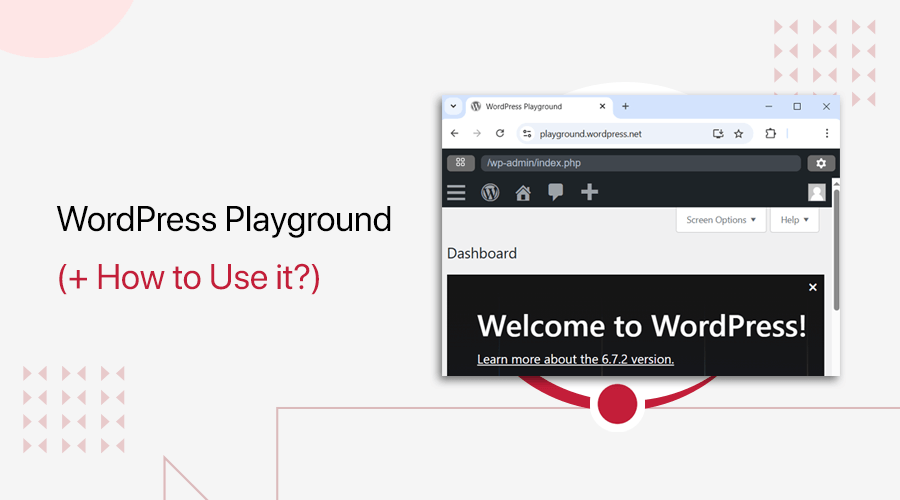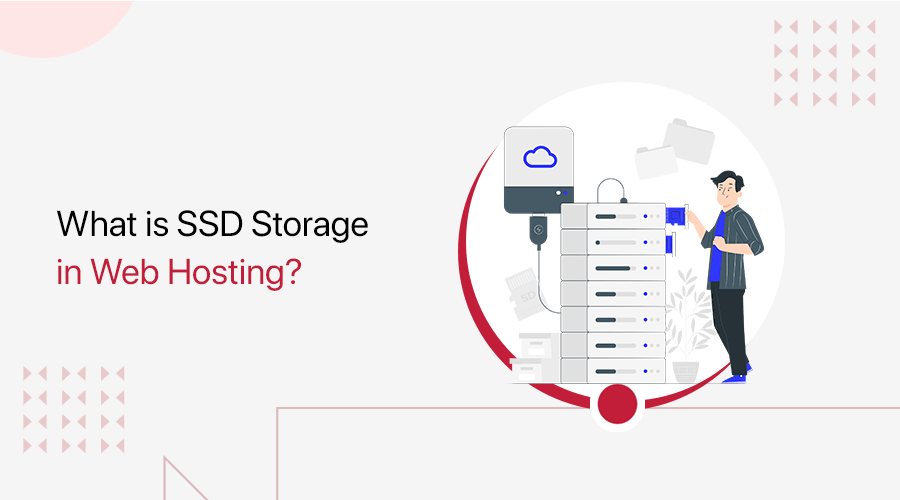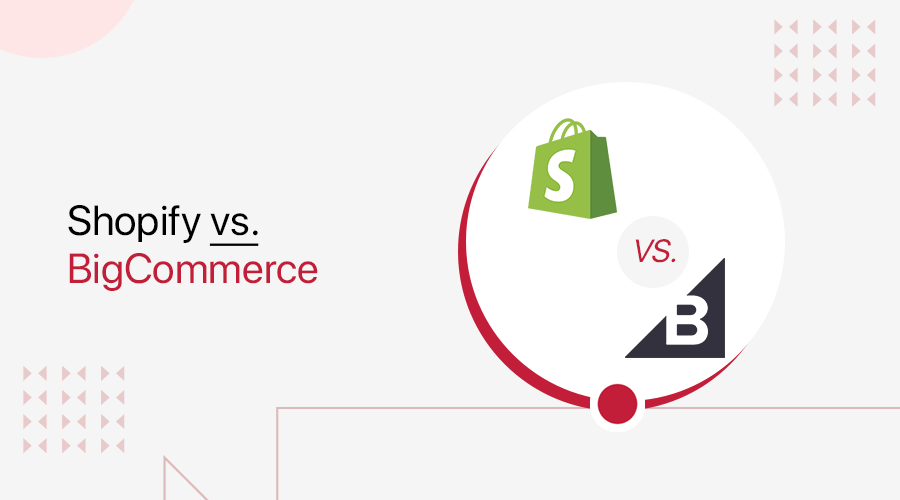
Are you wondering which eCommerce site builder is better between Shopify vs BigCommerce? If yes, then you’re at the right place.
Shopify and BigCommerce both are the 2 preferred eCommerce site builders for online stores. They both are best in their ways. But, if you’re new to eCommerce, then you might be overwhelmed when choosing a site builder.
So, to help you out, we present to you the comparison between “Shopify vs BigCommerce”. Here, we’ll provide you with a detailed comparison between these 2 eCommerce site builders in multiple areas.
Let’s start!
A. Shopify vs BigCommerce – Overview
Shopify and BigCommerce are both popular eCommerce platforms. With these eCommerce builders, you can build any kind of eCommerce store with ease.
Whether you go with Shopify or BigCommerce, both have a sophisticated interface and come with lots of options that let you create a beautiful eCommerce site.
Therefore, to help you decide which one is better, we need to compare them in terms of features, cost, support, and more.
But before that let’s have a quick overview of each eCommerce site builder first.
So, let’s dive in.
Overview of Shopify
Shopify is a popular eCommerce website builder on the market. It’s a Canadian-based eCommerce company that allows you to create your own eCommerce website and sell your product easily.
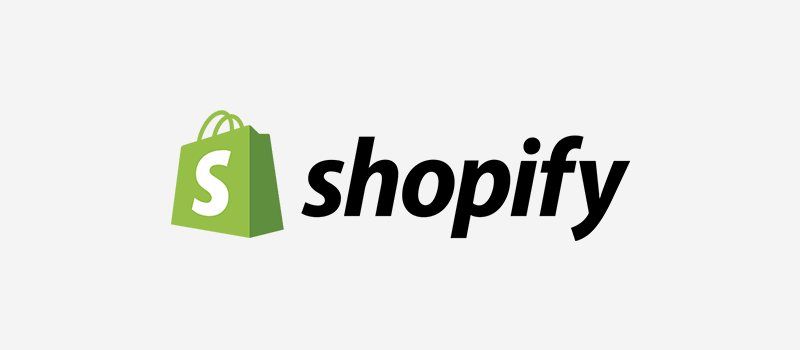
It was created back in 2006 to let people build their online store themselves without coding or design skills. Plus, it’s a bonus point for you if you’re familiar with HTML and CSS. However, coding skill is not a requirement for using Shopify.
With Shopify, making an eCommerce website is quite simple because it’s a fully hosted standalone platform. That takes care of everything and helps you start, grow, and manage your business.
Not just that it even provides you hosting, domain, marketing tools, and more for building your online store.
The best part is that you can simply sign up for a website on Shopify, and get to work. To help you start with your first online store, it comes with ready-made online shop templates that you can tweak and customize to set up your online business.
Overview of BigCommerce
BigCommerce is another popular eCommerce platform that allows you to set up an online store and sell your products online.
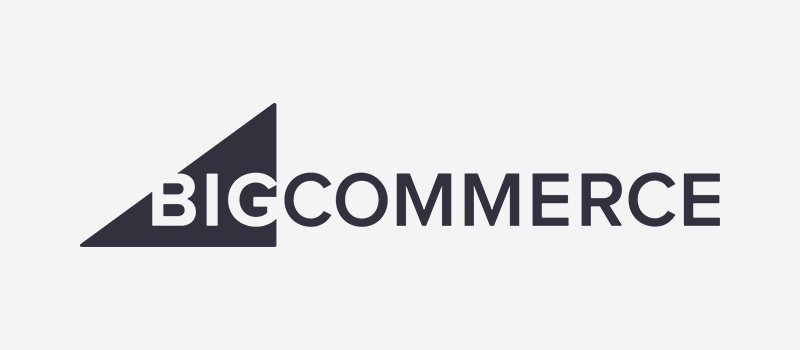
Similar to Shopify, BigCommerce is also a fully hosted platform that runs on its servers. Meaning, you don’t have to buy web hosting or install anything on your computer to use it.
Hence, it provides you with everything from a complete package of hosting to templates, marketing tools, payment options, SEO, and a lot more.
The best part is that it comes with a range of customizable templates to help you start your online store. With these templates, you can either sell physical or digital goods or both. Plus, it also provides some tools to help you market your store.
This platform mostly catered toward people who’re much farther away from web design skills. But still, tech-savvy users and developers can further take advantage by tweaking the HTML and CSS of BigCommerce stores.
B. Shopify vs BigCommerce – Ease of Use
Without a doubt, building your online shop is not an easy task. Hence, the eCommerce builder that you select must be simple to use.
Here, both Shopify and BigCommerce give you a user-friendly environment to build your online store.
Hence, let’s compare and contrast Shopify vs BigCommerce on ease of use.
Is BigCommerce Easy to Use?
The very first thing about BigCommerce is that it’s a fully-hosted platform. Therefore, you don’t have to worry about anything whether setting up a hosting service or anything else.
Since this would be the first time we’re going to build our online store with BigCommerce, so let’ begin with the free trial.
To get started, all you need to do is to go to their official page and under the Essentials option located at the top of the page. And, click on the blue button called Start Your Free Trial.

In this free trial, you’ll be able to create your online store and start selling products with a 15-day risk-free trial. Once you’re satisfied with its trial period, then you can decide whether you want to purchase its premium plan or not.
Getting back to it, once you’ve clicked into that blue button, it’ll ask you to fill in certain information such as store name, email address, size of your online business, and more.
After you’ve provided all those details, click on the Create Your Store button. This will then automatically set up your store and it’ll redirect you to your BigCommerce Dashboard.
As you go inside the BigCommerce dashboard, you’ll find all the features and options that you need to manage and run your store. Likewise, in the left-hand side menu bar, you can find options like Orders, Products, Customers, Storefront, Marketing, Analytics, App, and more.
By far we can say that BigCommerce is straightforward and easy to use. Since most of the features that you see here are in-built. Therefore, you don’t have to worry or look for any other tools or technical expertise for your online store.
Not just that with a free trial, you’ll get a BigCommerce subdomain name for free. It’ll look something like – example.bigcommerce.com.
As a beginner, you can use this subdomain at first. However, later on, you can purchase a custom domain that suits your brand.
Lastly, we’ll say that getting started with BigCommerce takes no time. Also, it takes care of most of the things so that you can give your full time to growing your business.
Is Shopify Easy to Use?
On the other hand, Shopify is another great platform that comes with a variety of tools that can help you to set up and run your business.
To start with Shopify, first, you have to create an account on Shopify.
For that, visit their official website and then click on the Start Free Trial button. In that free trial, you’ll be able to use Shopify for 14 days without any credit card required.

During creating an account, you’ll be asked to fill out your store name, business detail, personal detail, and others. Once you’ve filled all those, it’ll automatically take you to your Shopify Dashboard.
As you could see that Shopify Dashboard is quite clean and modern. Similar to BigCommerce it includes all of the features on the left sidebar. Such as Orders, Products, Customers, Analytics, Marketing, and more.
Now from here, you can start building your online store and navigate to the different options to customize your store. the way you want.
Hence, we can say that managing your store with Shopify is definitely much easier with all possible features in one single place. All of its features come in plans, making it very easy for anyone to learn about and pick one that suits their needs.
C. Shopify vs BigCommerce – Major Features
By now, we’ve already known what each of these platforms does and how easy it is to use them. But, now let’s look at some of the major features for Shopify and BigCommerce respectively.
Major Features in BigCommerce
Some of the features that you get with BigCommerce are:
- Powered by powerful visual drag and drop website builder.
- Fully customizable themes with built-in HTML, CSS, and JS.
- Create over 70+ native discounts and promotions.
- Keeps your in-store sales automatically updated with a native POS system.
- Easily switch between your multiple storefronts with a single login.
- Powerful WordPress integration to build your site on WordPress.
- Accepts digital payments through Apple Pay, Amazon Pay, PayPal One Touch, and more.
- Accepts payments in over 100+ currencies and offers local payment through the gateway of your choice.
- Sell your products on top marketplaces such as eBay, Amazon, and Google Shopping.
- Integrates with ShipperHQ to enable accurately quoting for cross-border shipping
- Encourages social commerce to capture more customers on social channels with Facebook, Pinterest, and Instagram integration.
- Get real-time reporting and analytics through the BigCommerce Analytics Dashboard.
- Localize the BigCommerce frontend in any language with translation apps and APIs.
Major Features in Shopify
Here are some of the major features that you get with Shopify:
- Wide range of free and paid themes from the Shopify Theme Store
- Hire Shopify Experts to help you build your business.
- Offers several free and paid apps from the Shopify App Store.
- Sell your products in person and sell them almost anywhere with Shopify POS (Point of Sale)
- Accepts payment through third-party providers like PayPal, Amazon Pay, and Apple Pay.
- Allows you to sell your products on different online sales channels like Facebook, Amazon, Messenger, Instagram, etc.
- Provides Shopify Analytics and reports to help you learn more about your sales and customers.
- You can live chat and manage all of your customer and team conversations from one place with a free messaging app called Shopify Ping.
- Accepts payments online with their Shopify Payments.
- Provides Shopify Analytics and reports to help you learn more about your sales and customers.
D. Shopify vs BigCommerce – Themes and Design
Although your store might run smoothly behind the curtains. It’s quite necessary to have an attractive front-end to lure your customers to buy your products.
Therefore, you always look for the design/template or customization options on the site builders. Saying that, let’s look at the theme design options Shopify vs BigCommerce offer you.
Themes and Design of BigCommerce
Who doesn’t want to stand out from the crowd and want to make their visitors notice their website first? In that case, BigCommerce comes with a reasonably good collection of responsive templates that helps you design your online store.
BigCommerce comes with over 100+ themes. Among them also there are 12 free themes and over 100 paid themes, which range from $145 – $300. You can find all of these themes from the BigCommerce Theme Store.
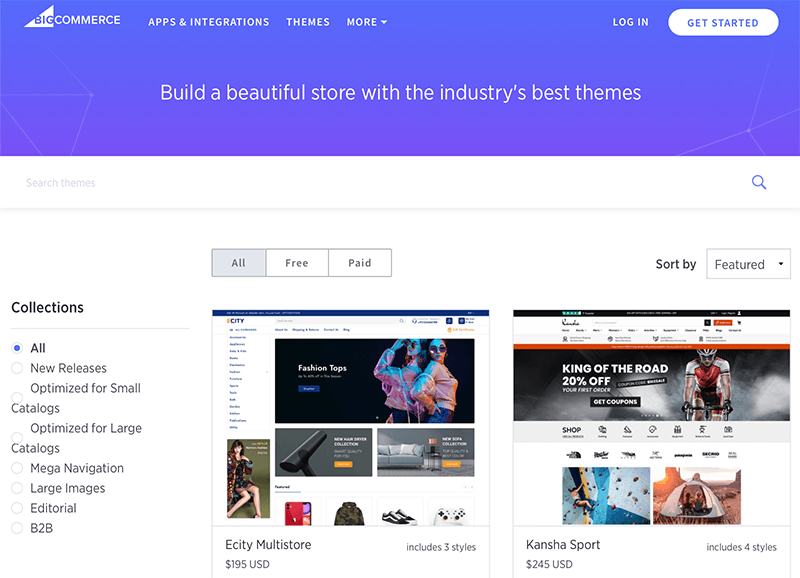
Besides, it comes with a collection of industry-based themes that you can choose according to the requirement of your store. Plus, you can search for your perfect theme by industry, or by the layout you want for your template.
Depending on the industry themes are mostly categorized under Animal & Pets, Arts & Craft, Fashion & Jewelry, Food & Beverage, Health & Beauty, etc. Also, the good thing is that all of these available themes are responsive and work on all devices.
Before choosing any theme, you can preview that theme, which is a really useful option. Anyway, if you select a theme and then change your mind, don’t worry! BigCommerce allows you can switch your template any time you like.
Lastly, you’ll be able to create a professional and stunning design for your BigCommerce store using either free or premium themes.
Themes and Design of Shopify
Just like BigCommerce, Shopify also doesn’t disappoint you in terms of design and templates.
Shopify comes with over 80+ themes. Among these 10 are free themes and over 70 are premium themes. These themes are modern and flexible designed to help you express your brand.

You can have access to these themes from Shopify Themes. These themes can be useful for building a wide array of websites. All you need to do is choose a theme of your choice from these options, and set your site’s design.
Shopify premium themes cost between $100 to $250 on average. The price is quite high in comparison to the BigCommerce themes. Besides, you also get a handful of themes with Shopify.
Lately, Shopify has been introduced as part of Shopify’s new Online Store 2.0 theme format. These new themes are guaranteed to be faster and more customizable than the previous generations of Shopify templates.
If you’ve gone through Shopify’s theme store then you might have seen have a little OS 2.0 icon beside them.
E. Shopify vs BigCommerce – Payment Gateways
It’s time to see which of these two eCommerce site builders provides your store with different payment gateways. It’s quite important to understand the payment process when it comes to getting paid by your customers.
Whenever a customer checks out with the products they want to buy, they should have an option to choose to pay for their orders. Now, let’s look at what different payment options Shopify and BigCommerce have to offer.
Payment Gateways in BigCommerce
Since we’re talking about payment gateways, BigCommerce doesn’t force you to settle on any one particular payment method. The good thing is that you can hook up your store to whatever payment option you prefer.
This means that whether you accept your payment via credit cards through online gateways or offline payments, BigCommerce lets you do both.
Likewise, BigCommerce doesn’t charge you any transaction fees, however, you’ll experience the usual credit charges from your payment gateway.
BigCommerce gives you over 65 pre-integrated online payment gateways to choose from. It seems to integrate well with PayPal, Chase, Stripe, Apple Pay, AmazonPay, and a number of other popular payment gateways.
Not just that if you’re thinking of taking your business global then BigCommerce does support you in that too. Since it serves around 230 countries and over 140 currencies.
Payment Gateways in Shopify
When it comes to payment gateways, Shopify offers a few different options to choose from. If you want to allow your customers to pay using a credit card, then you can use Shopify Payments or a third-party provider.

Shopify Payments is their very own simple-to-use payment gateway that allows you to accept payments online. It accepts all major forms of payment and also eliminates the hassle of setting up a third-party payment provider.
However, to use this feature your business should be operated from one of the supported countries. Plus, your business shouldn’t be considered a prohibited business as well.
Similarly, for countries that don’t support Shopify Payments, then you can choose from other payment gateways such as PayPal, Facebook Pay, Amazon Pay, and Apple Pay.
Not just that, in this world of digitalization, they even accept alternative methods of payment like cryptocurrency.
Therefore, we can definitely say that Shopify does provide you with lots of payment options to make it easier for your customers.
F. Shopify vs BigCommerce – App Store
App Store in BigCommerce
If already available features in BigCommerce aren’t sufficient for expanding your site then you can consider purchasing some apps from its app store. Yes, you hear it right, BigCommerce does come with its own app store.
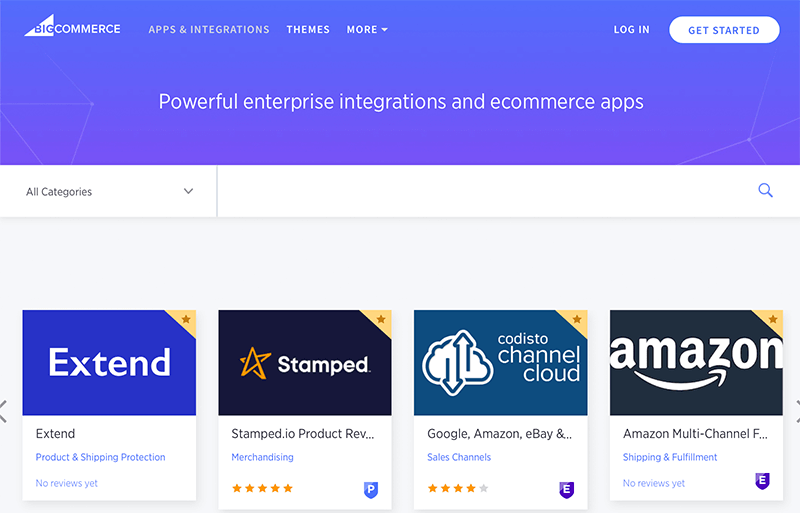
With the BigCommerce app store, you get over 1000+ apps to choose from. It includes a wide range of integrations that let you add many additional features to your BigCommerce store.
There you’ll find different apps that deal with different aspects that help you run your online business smoothly and successfully. You can find apps for different categories such as accounting, marketing, shipping, ERP, CRM, and so on.
App Store in Shopify
Shopify has also come with its own mobile app called Shopify Mobile. In around 2009, they launched their Shopify App Store. With that launch, many developers came forward and developed different applications for Shopify App Store.
When it comes to Shopify Mobile, it’s is a decent mobile app that lets you manage orders, products, and customers from your iPhone or Android. Nevertheless, It makes sure that your business is always running smoothly even when you are on the go.
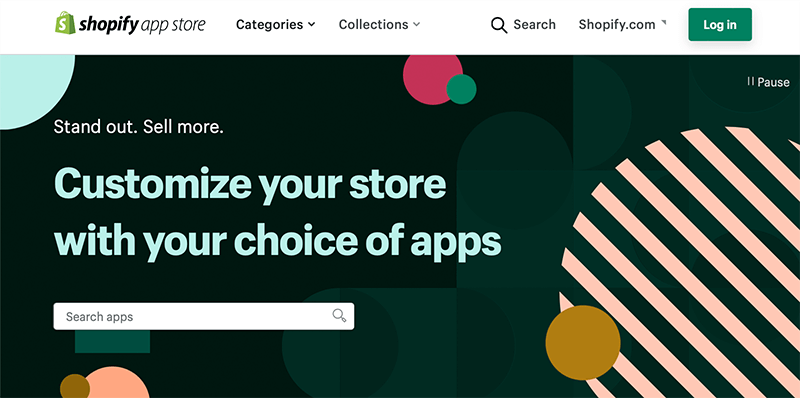
This Shopify App is quite easy-to-use. All you need to do is download the app on your device and log in to your account to start using your Shopify admin. Similarly, if you’re making in-person sales, then you can also use the Shopify POS app on your device.
Let’s look at some of the features of Shopify Mobiles:
- Upload product photos and set product and pricing details.
- You can add your products to the collection.
- Lets you track fulfill, refund, or archive orders.
- View your live sales and visitor traffic.
- Get an order notification whenever someone orders a product.
- Built-in messaging system to let you communicate with the staff.
Therefore, we say Shopify Mobile is a niche mobile app for store owners who want to manage their store from their smartphones.
G. Shopify vs BigCommerce – Security
When it comes to the eCommerce business, security is the topmost priority. In a business in which thousands of transactions happen with sensitive information being exposed, it’s the eCommerce site’s responsibility to protect customer data and information.
Now, let’s look at what different security options Shopify vs BigCommerce have to offer.
Security in BigCommerce
An eCommerce platform that sells thousands of products across multiple countries has always been under threat of security. When it comes to security, BigCommerce provides high-end multi-layer security to protect the site information
BigCommerce is an ISO/IEC 27001:2003 certified and PCI DSS 3.1, Level 1 certified eCommerce website builder. This means that they don’t take a risk of losing your site’s sensitive information.
The best part is that they strongly believe in protecting the personal information of their customers. Therefore, even their developers don’t get access to the personal data of a customer to avoid data being leaked.
Similarly, if you’re worried about backup and restore with BigCommerce then don’t worry. Through BigCommerce you can reinforce your store’s data with two data centers. Besides, they’ve got a third backup data center especially separated to mitigate potential failure.
Hence, BigCommerce handles all the security aspects of your store itself without you need to worry about security issues. So that you can focus on providing a secure shopping experience to your customers.
Security in Shopify
Being a hugely successful eCommerce platform, Shopify contributes a mass number of transactions every short time. With millions of people buying and promoting products across multiple countries.
Hence, it becomes a perfect place for carrying out fraud, DDoS attacks, hacking, e-skimming, and many others.
But, Shopify continues to provide full security and makes your site free from all those security threats that may damage your reputation. Hence, both vendors and customers can use their systems without any worry of getting robbed.
With Shopify being an SSL (Secure Socket Layer) licensed eCommerce platform. It guarantees to improve your online safety by securing your store’s content by implementing HTTPS instead of HTTP.
Moreover, Shopify is also a level 1 PCI DSS (Payment Card Industry Data Security Standard) compliant. This means that any online transactions made by your customers from their credit cards are secure and protect them against identification robbery.
Lastly, to prevent any unauthorized person from getting an entry to your account, Shopify provides two-factor authentication.
H. Shopify vs BigCommerce – Support
Sometimes even experienced users get stuck when they’re building a website on a new platform. At such times, what you look for is good customer support so that your problems are taken care of.
Every website builder provides you with customer support that lets you easily get your answers to the issues that you’re facing. Therefore, you’d check if your preferred platform provides enough support to their users in a short time.
So, let’s have a look at the support options that BigCommerce and Shopify provide.
Support in BigCommerce
When you’re running an eCommerce store, any problems that occur while making money through your store can be costly. Fortunately, BigCommerce comes with an excellent range of support options to get you sorted quickly and easily.
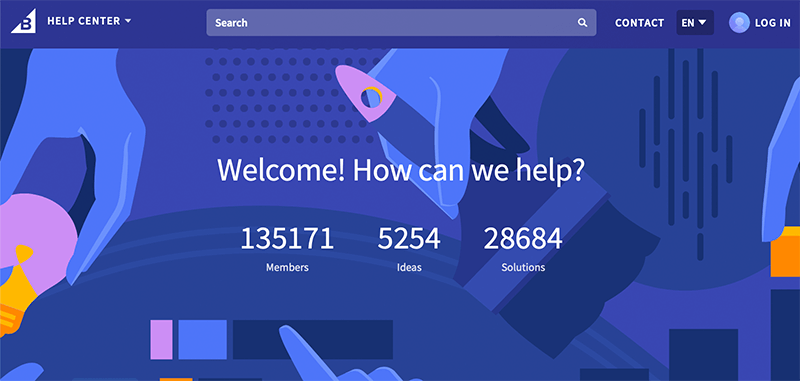
If you check out their customer support page, then you’ll lot of resources to help you starting from online forums to eCommerce blogs. You’ll even get videos, podcasts, webinars, and tutorials, too.
Check out their Learning Resources to access the entire library of educational resources for eCommerce industry insights, expert tips, success strategies, and more.
Whenever you need help, you can reach out to their support team via phone, live chat, email, and the forum. However, it would be best if you try to resolve the issue by searching for an answer to your query via Knowledge Base.

For those who’re completely new and launching their first online store, you’d definitely take the time to check out BigCommerce University. This is their official learning platform where you can find a series of informative videos to help your site earn more money.
It includes everything from self-paced courses for individual users to personalized, in-person instruction for entire teams.
Finally, if you’ve purchased their Enterprise Plan, then you’ll get priority support. In this priority support, you’re offered an onboarding consultant, as well as prioritized phone calls.
Support in Shopify
When it comes to customer support, Shopify provides you with everything within a single roof. All you need is to go to their official website and click Learn in the menu bar. This will then list out everything there for you.
The Learn section then opens a dropdown menu that is furthermore categorized in many sections. It includes Help Center, Blog, Business Courses, Guides, Forum, and more.
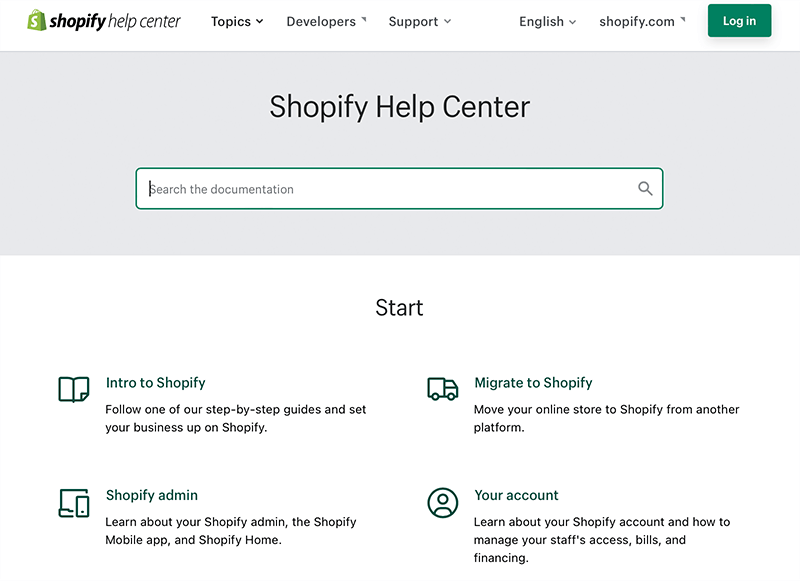
If you look inside the Help Center then you’ll get all the pre-written information that you might need starting from Intro to Shopify to Market Analytics. For more information, you can type in the queries and search for the documentation.
Besides that, Shopify Blog contains different sorts of blog articles to help you start and grow a successful business. These blogs even provide business ideas to help you get started with your online business.
As usual, Shopify also provides excellent 24/7 phone support to their customers. You can even get connected with their support team via various social media platforms and emails.
Not just that, beginners struggling with their online store, can join their community forum. These forums can definitely get your issues fixed quickly. It’s also a great way to get connected with the community and get help and suggestions.
I. Shopify vs BigCommerce – Pricing Plans
When it comes to choosing the best eCommerce builder platform, pricing too plays a significant role. It’s because not everyone may have the same amount of money to spend on. You’re obviously more likely to select the one that falls under your budget.
That’s why let’s compare the pricing of BigCommerce vs Shopify.
Pricing Plans of BigCommerce
BigCommerce offers three monthly pricing plans which are as follow:
- Standard ($29.95/mo) Sell goods online with your beautiful online store.
- Plus ($79.95/mo) Grow your online business with marketing tools proven to increase conversion
- Pro ($229.95/mo) Scale your growing business with a comprehensive set of features
All these plans offer custom SSL, extensive storage, unlimited bandwidth, unlimited products, product filtering, and many more.
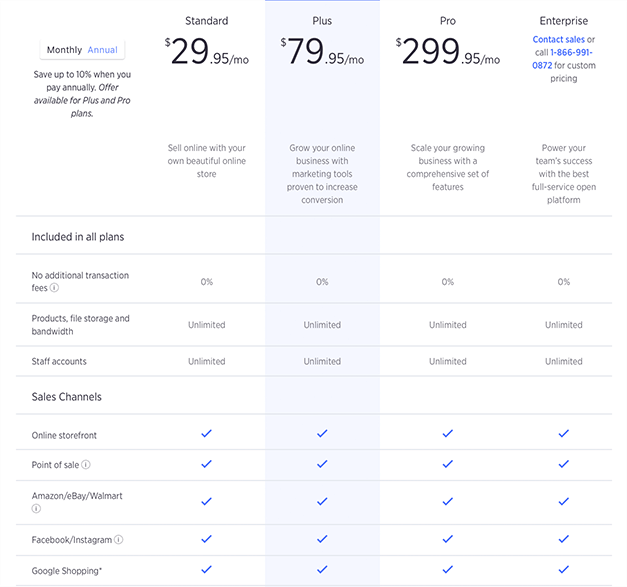
With that said, BigCommerce also comes with one more pricing plan that caters to larger businesses and corporations called Enterprise Plan.
This plan is a bit diverse and comes with the full-featured service of the BigCommerce store. However, it’s a custom pricing plan so the actual cost of the plan is also not mentioned anywhere. But, if you’re interested in this plan then you can directly contact their sales team.
Nevertheless, BigCommerce also provides a 15-day free trial to use its service without a single charge. This way it makes it easier to find the right plan according to your requirement and budget.
Pricing Plans of Shopify
Shopify offers you 3 different plans to choose from Basic Shopify, Shopify, and Advanced Shopify.
- Basic Shopify ($29/mo) Best for new businesses or online businesses new to in-person selling.
- Shopify ($79/mo) Best for growing businesses selling online or in-store.
- Advanced Shopify ($299/mo) Best for growing businesses that require advanced reporting.
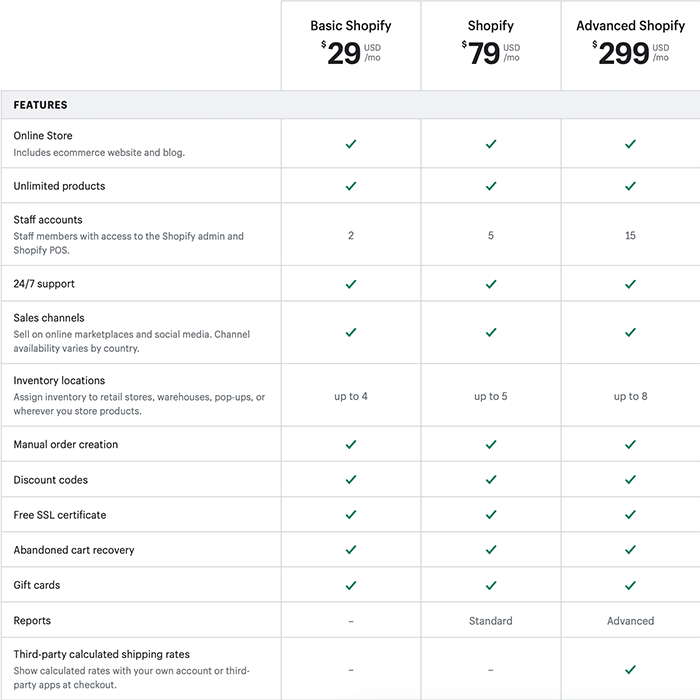
Besides, these three major plans, Shopify also offers two other plans i.e.
- Shopify Lite ($9/month) Includes financial reports, mobile POS, in-store inventory, gift cards, split bill, and QR code product details.
- Shopify Plus ($2,000/month) Includes 18% higher conversion, 60% faster checkout, and built-in AR, video, and 3D media on product pages.
Lastly, we’d also like to mention that Shopify offers a 14-day free trial. During that trial, it unlocks all the features, so that you can test the platform thoroughly before applying to any of its premium plans. Also, you can cancel your trial account at any time, if you’re not satisfied with their service.
J. Shopify vs BigCommerce – Pros and Cons
After looking at different areas for both Shopify and BigCommerce. Now, it’s time, to sum up, and know the pros and cons of each.
Pros and Cons of BigCommerce
Pros of BigCommerce
- No any fees/commission charges on any plan
- Fully hosted platform
- Accepts multiple payment gateways
- Easy to sell products in multiple currencies
- Perfect for ambitious and well-established eCommerce stores
Cons of BigCommerce
- Not so easy to create multilingual stores
- Less mobile apps are available
- Overwhelming interfaces for beginners
Pros and Cons of Shopify
Pros of Shopify
- Easy to use and beginner-friendly
- Fully hosted platform
- Unique theme options
- Excellent inventory system
- Offers stronger mobile app
- 14 days of free trial with no credit card required
Cons of Shopify
- Expensive to build multi-language stores
- Shopify Payments not available everywhere
- Limited customization options
K. Recommendation
To be honest, both Shopify and BigCommerce are best in their own way. It depends on you which eCommerce builder is suitable for you depending upon your requirement.
Both Shopify and BigCommerce contain good features and functions for building your eCommerce site. With that said both have their own pros and cons. So, ultimately it’s all up to you to choose.
You Should Choose BigCommerce If –
- Perfect for beginners.
- You want more design functionality for building your store.
- No transaction fees applied.
You Should Choose Shopify If –
- Perfect for a large business with a complex inventory
- You run and manage your store through your mobile.
- You’re looking for well-written documentation and tutorials.
Conclusion
That’s about it. We hope we have covered all the elements while comparing BigCommerce vs Shopify.
If you’ve any further queries about BigCommerce vs Shopify, then please leave a comment below. We’ll try to get back to you as soon as possible.
And, for more eCommerce platforms, check our article on the best eCommerce platforms to make an online shop.
You may also like our article about the best eCommerce plugins for WordPress & a step-by-step guide on how to make a website.
If you like this article, then please share it with your friends and colleagues. Also, don’t forget to follow us on Facebook and Twitter.

